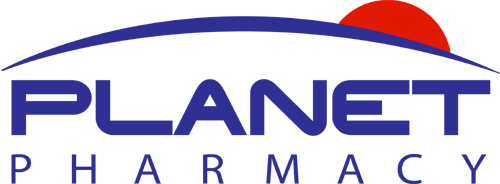
U.S. District Judge Jack T. Camp sentenced Jared Wheat and Sergio Oliveira to prison for their involvement with Planet Pharmacy in Belize which produced generic versions of various prescription drugs including various anabolic steroids. The government prosecutors in the case advocated 37 months for Wheat and 18 months for Oliveira; Judge Camp rejected the recommended sentencing included in their plea agreements under Rule 11(c)(1)(C) because it wasn’t harsh enough given the seriousness of the conduct.” The C-pleas gives the defendant(s) the option to withdraw a guilty plea if the judge denies the sentencing deal; Wheat and Oliveira decided to proceed with sentencing. Jared Wheat was sentenced to 50 months in prison and Sergio Oliveira was sentenced to 27 months in prison (“Diet supplement king gets 50 months in prison,” February 3).
Jared Wheat founded Planet Pharmacy on September 20, 2001 when the corporate domain name PlanetPharmacy.bz was registered. The manufacturing, marketing, and sale of inexpensive generic pharmaceuticals commenced five months later. Sergio Oliveira was hired by Wheat in April 2003 to oversee offshore marketing for Planet Pharmacy; Oliveira introduced various anabolic steroids and ancillary products to the Planet Pharmacy product line including generic versions of Anavar, Anadrol, Dianabol, Winstrol, Arimidex, Clomid and Nolvadex. All of these activities were completely legal in Belize. The United States government nonetheless held the defendants criminally responsible for directly importing medications into the United States, in part, because they knew that one of their Mexican wholesalers was shipping parcels to residents of the United States.
The U.S. Attorney David Nahmias used the opportunity for political grandstanding with the dubious suggestions that Planet Pharmacy illegally manufactured generic pharmaceuticals in Belize and that these drugs were potentially deadly (“Georgia drug maker sentenced for fake imports,” February 3).
These defendants sought to profit from unsuspecting customers who had no idea they were buying pills manufactured in highly unsanitary conditions in a Belezian (sic) house, all without FDA approval or licensing from the rightful patent holders. We are extremely fortunate that no one was sickened or killed by these drugs.
Nahmias suggestions may be a little misleading and/or inaccurate.
Planet Pharmacy manufactured several oral anabolic steroids and ancillary medications that were analyzed multiple times by San Rafael Chemical Services (SRCS). Lab analyses reviewed by MESO-Rx repeatedly showed these medications to be free of impurities and accurately dosed, nonsterile conditions notwithstanding.
Since Belize does not recognize USPTO world patents granted to pharmaceutical companies, Belize does NOT legally require the approval of U.S. patent holders or the U.S. Food and Drug Administration (FDA) to manufacture generic drugs.
Pharmaceutical multi-national corporations make billions of dollars for every year they can extend exclusive patent protection on popular pharmaceuticals. The eliminating generic pharmaceutical companies, paying off competing generic pharmaceutical companies to forgo entry in the market, pressuring compounding pharmacies, introducing barriers to the importation of generic drugs from internet pharmacies, and redefining the World Health Organization’s definition of “counterfeit drugs” to basically include all generic drugs conveniently serve to extend patent protection and enormous profit for pharmaceutical MNCs.
Extended patent protection results in billions of dollars in additional profit annually for the corporations and their shareholders. This enormous windfall comes at the expense of the consumer.
The more popular explanation is that these actions all serve to protect vulnerable consumers from deadly and dangerous generic drugs manufactured outside the United States.
Are consumers truly the beneficiaries?

About the author
Millard writes about anabolic steroids and performance enhancing drugs and their use and impact in sport and society. He discusses the medical and non-medical uses of anabolic-androgenic steroids while advocating a harm reduction approach to steroid education.

Leave a Reply
You must be logged in to post a comment.